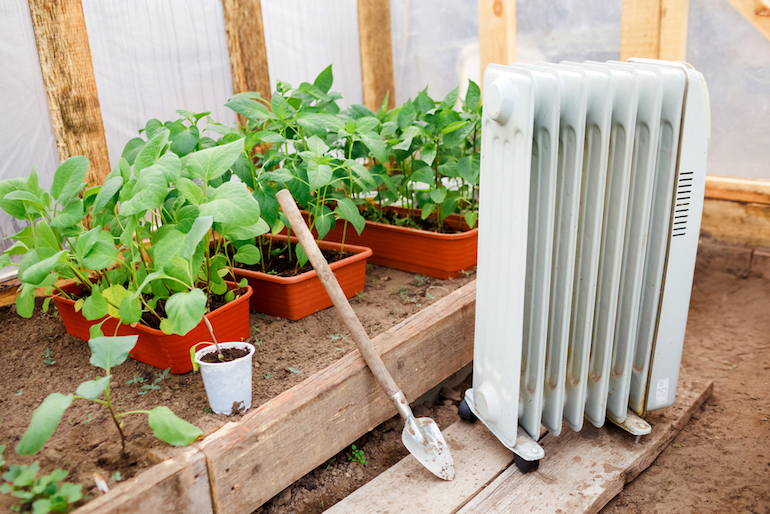As the winter months approach us, you need to be thinking about how to keep your plants safe during the harsh winter season. That’s why we’ve compiled some tips for you on how to keep your plants safe in winter.
BenBuys.wpengine.com knows how important plants are to your overall curb appeal, so we want to make sure you know how to keep them thriving for the spring regrowth. And fall is the perfect time to start that process, so let’s get down to it.
How to Keep Your Plants Safe in Winter
Protecting the Plants
Protecting your plants from the extremes of winter can be done simply – in other words, some plants don’t need to uprooted and hauled inside to sit by the fireplace with a cup of hot chocolate to keep them warm.
In fact, some plants can be left outside due to their hardiness – just consider providing them some cover. There are a few options when it comes to covering your plants, these include:
- Mulching: Using an organic mulch helps to protect the roots and base of the plant, while providing much-needed nutrients to the soil. Be sure to rake back the old mulch and apply a two to three-inch thick layer, making sure to leave about a half inch space around the stem of the plant. This will provide the proper air flow and prevent root rot.
- Blankets: A frost blanket or burlap wrapped around the base of the plant will help to protect the plant. You could also use shredded up leaves – recycling all those leaves that fall as well. Covers like these will need to reach the roots in order to be effective. But don’t wrap them around the stem of the plant as it could cause damage to the stem or foliage of the plant.
- Screens: Protect outdoor plants by building a frame or screen structure around the plant or bush, then fill with straw or hay.
Take Them In
If you have potted plants, consider storing them inside in a basement or a garage, especially if it’s heated. But even if your garage isn’t heated, you can store your potted plants in there and wrap the container and soil in burlap.
Pro tip: Keep your potted plants on rolling dollies to make transporting them inside a bit easier. Watch this video from Growing Wisdom to learn some great tips on protecting your container plants during the winter months.
Be sure to avoid allowing the potted plants to be exposed to the rapid changes in temperatures that we can experience in the fall and leading into the winter months. This rapid temperature change can kill a plant. Consider placing the plant on top of the soil instead of on top of concrete or wood as they can exacerbate the extreme temperature changes.
The size and thickness of the pot you use can make a difference as well. Choosing pots with, at least, a one-inch thick sidewall will give your plants a better chance. Also choosing a pot that is larger will help to protect the plant, as the soil will take longer to freeze in a larger pot.
Leave Them Out
If you have nowhere inside to take your potted plants, you can take steps to protect them while leaving them outside too.
Keep your container plants on the east or north side of your home, as the temperatures are usually more stable, while a southern placement will result in a bigger temperature shift.
- Safety in numbers: Just as humans can attain better warmth when we snuggle together, the same goes for plants. Consider grouping pots together, and on top of the soil to allow them to feed off of each other’s warmth. An added tip is to place them close to the house, garage or shed.
- Blanket them with warmth: Surround your pots with hay bales, as the bales will help increase the insulation, thus protecting them from freezing winds. Or wrap the pots in burlap, an old blanket or throw, or anything else you can come up with that will keep them cozy
Pro tip: place your pot into a larger, thicker pot to amp up the insulation. - Mulch the top of the pots: Just like the plants in the ground, mulching your potted plants will help to protect them. Just don’t forget to leave some room for airflow around the plant.
Keeping your plants safe during the winter will help to prevent your plants from damage to the roots, foliage and protect them from dying. Take the steps now to plan the fall maintenance required for your plants.
If you are looking to move to a more winter-friendly area, contact Ben Buys Indy Houses today to learn how he can help you sell your house for cash and fast.





